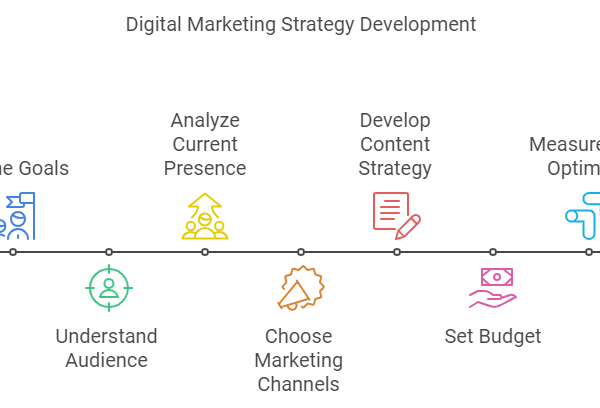
Explanation of USMLE Step 1
The USMLE Step 1 exam is a crucial test for medical students. It evaluates their grasp of fundamental scientific concepts essential for practicing medicine. This challenging exam consists of multiple-choice questions covering various topics learned during medical school. To prepare, many students opt for USMLE prep courses, seeking the best resources available. With recent changes shifting from numerical grading to pass/fail, the discussion surrounding its difficulty intensifies. Despite this, understanding the exam’s intricacies extends beyond its pass/fail nature, influencing medical education and future career paths.
Importance of USMLE Step 1 in Medical Education
- Standardized Assessment: Evaluates fundamental knowledge in basic sciences essential for clinical practice.
- Residency Program Selection: Scores heavily influence residency program acceptance and competitiveness.
- Career Opportunities: High scores increase chances for competitive specialties and prestigious programs.
- Pass/Fail Transition: The recent shift to pass/fail doesn’t diminish its importance as a baseline assessment.
- Preparation for Clinical Practice: A strong foundation aids success in Step 2 CK, Step 3, and clinical practice.
Transition to Pass/Fail Scoring
The decision to shift Step 1 of the USMLE exams to a pass/fail scoring system stems from concerns about its impact on medical students. Previously, this exam, known as one of the hardest in the field, emphasized competition and stress. Students felt pressured to achieve top scores, sometimes at the expense of their well-being.
Moreover, the reliance on Step 1 scores perpetuated inequalities among students, favoring those who had access to better resources or preparation courses. Recognizing these issues, the decision-makers opted for a pass/fail approach to alleviate the intense competition and reduce the disparities in medical education.
This change aims to foster a healthier learning environment where students can focus on acquiring clinical knowledge and skills without the overwhelming pressure of achieving a particular score on this single exam.
Understanding the Complexity of USMLE Step 1

USMLE Step 1 is known as one of the hardest exams in the medical field, covering a vast array of topics like anatomy, physiology, pharmacology, pathology, and microbiology. To tackle this challenge, it’s crucial to have a detailed study schedule and access to the best USMLE prep course. These courses provide practice questions and comprehensive content to help you master the complex concepts tested on the actual exam. By dedicating time and effort to preparation, you can navigate the intricacies of Step 1 and increase your chances of success.
Feedback on the Challenges Faced by Test-Takers
Test-takers often face various challenges when preparing for the USMLE Step 1 exam. They must tackle a vast amount of material, including different types of questions that require both basic science and medical knowledge. Time constraints add pressure, especially when balancing preparation with other academic and personal commitments.
Practice tests are crucial for gauging readiness, but achieving a passing score can be daunting. Navigating these complexities underscores the importance of enrolling in a comprehensive USMLE prep course. Despite these challenges, with dedication and effective study strategies, success on the USMLE exam is achievable. To pass Step 1 with effective study strategies, it’s essential to incorporate a variety of resources and practice methods.
Factors Beyond Content Knowledge that Contribute to Success
- Effective Study Strategies: Utilize active recall, spaced repetition, and interleaved practice.
- Time Management Skills: Balance study schedules and allocate time wisely.
- Stress Management: Employ mindfulness, exercise, and rest to mitigate pressure.
- Support System: Benefit from peers, mentors, and family for emotional support and advice.
- Test-Taking Skills: Practice with sample questions and develop effective strategies.
- Self-awareness and Reflection: Identify strengths, and weaknesses, and adapt study habits accordingly.
- Physical Well-being: Prioritize nutrition, exercise, and sleep for optimal cognitive function.
- Resilience and Persistence: Learn from setbacks and stay motivated throughout the preparation process.
Tips for Success

Success in tackling the USMLE Step 1 hinges on comprehending its intricate nature. Grasp the depth of each topic, recognizing interconnections and patterns. Employ active learning methods such as concept mapping and spaced repetition. Prioritize high-yield subjects while acknowledging the exam’s breadth. Consistent review and strategic practice are paramount.
- Focus on Understanding: Instead of merely aiming for a pass or fail, prioritize understanding the material thoroughly.
- Embrace Complexity: Recognize that the USMLE prep course is multifaceted, requiring a deep understanding of various concepts.
- Practice Critical Thinking: Develop critical thinking skills to approach complex scenarios and questions effectively.
- Utilize Resources Wisely: Make use of diverse resources such as textbooks, question banks, and review courses to enhance your understanding.
- Implement Active Learning: Engage in active learning strategies such as teaching concepts to others, creating concept maps, and participating in study groups.
- Master Time Management: Effectively manage your time to allocate sufficient study hours for each subject area and to balance review with practice questions.
- Prioritize Weak Areas: Identify and prioritize your weaker areas to allocate more time and focus on improving them.
- Incorporate Feedback: Learn from practice exams and question banks by analyzing feedback and adjusting your study approach accordingly.
- Maintain a Healthy Balance: Balance your study routine with self-care activities, exercise, and adequate rest to optimize cognitive function.
- Stay Positive and Persistent: Maintain a positive mindset, stay persistent, and trust in your abilities to succeed on the USMLE Step 1.
The Role of USMLE Step 1 in Medical Education and Beyond
USMLE Step 1 plays a crucial role in medical education by serving as a milestone for students. It tests their grasp of basic science knowledge, which forms the foundation of patient care. Successful completion of this exam signifies readiness for clinical rotations and further medical training.
While preparing for the Step exam can be challenging, choosing the best USMLE prep course can ease the process. Online courses offer flexibility and comprehensive resources, enhancing the exam experience. Ultimately, Step 1 is not just about passing; it’s about mastering essential concepts for future success in medicine.
- Step 1 serves as a crucial assessment tool for medical students, evaluating their knowledge and understanding of basic science concepts.
- Beyond the pass/fail paradigm, Step 1 influences medical education and career trajectories in multifaceted ways.
- Performance on Step 1 historically held significant weight in residency program selection, shaping students’ competitiveness and opportunities.
- With the transition to pass/fail scoring, attention shifts toward other components of applicants’ profiles, such as clinical experience, research, and personal attributes.
- Despite this change, Step 1 remains influential in certain contexts, including specialty competitiveness and academic opportunities.
- Understanding the complexity of Step 1 involves recognizing its role in shaping medical education, residency selection processes, and students’ professional journeys.
- Beyond its immediate impact, Step 1 performance may influence future standardized testing, licensing requirements, and ongoing medical training.
- The evolving landscape of medical education underscores the importance of critically examining the role of Step 1 and its implications for learners, educators, and healthcare systems.
In conclusion, the transition from Step 1 to pass/fail scoring signals a profound change in medical education. However, it’s imperative to recognize the multifaceted nature of this examination and its broader implications. Beyond the binary outcome of pass or fail, Step 1 remains a pivotal milestone in the medical student journey.
It demands comprehensive preparation, resilience, and adaptability. Therefore, a nuanced understanding of its complexities is essential. This shift underscores the need for medical educators, students, and residency programs to reassess their approaches to assessment and training, ensuring that the integrity of medical education and the healthcare system is upheld.
For more informative blogs keep visiting here.











